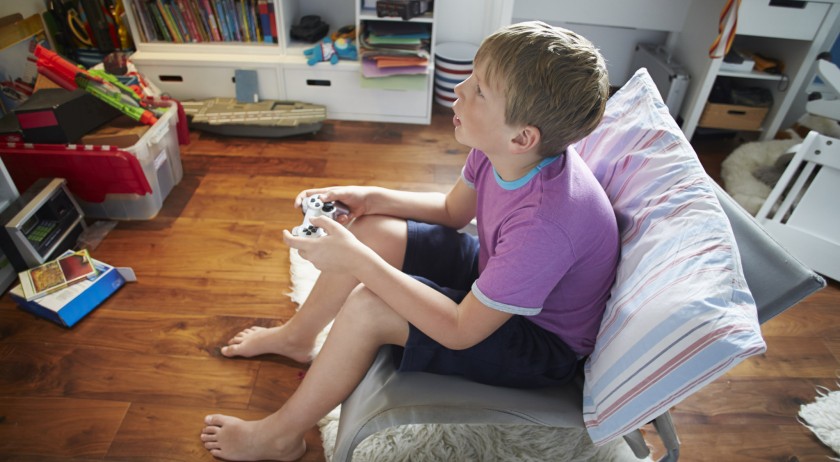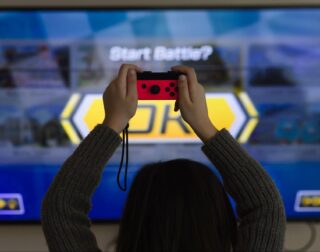Have you ever overeaten or spent too long sitting in front of the television? Most normal, well-adjusted, healthy adults would say yes to at least one of these questions. I know I can answer yes to both.
As parents, we could probably ask a similar set of questions about our child rearing. Have you ever let your kids eat too much junk food or play for hours on a video game because they were happy, you were busy, and the home was peaceful? Again, I’d venture to say that most healthy, well-adjusted, and thoughtful parents could say yes to both of these questions.
Occasionally letting go of normal limits and restrictions that we impose upon our kids can be perfectly fine. I often find that parents punish themselves when they let their kids stay up too late or allow them to play a violent video game. It’s all too easy to make mistakes as a parent, and most of us probably don’t deserve an “A” on our parenting report card every day.
When it comes to allowing children to play video games, many parents feel as if they need to set restrictions on their kids, that is, that they are making a dreadful mistake that will result in a poorly adjusted, academically troubled child if they allow him to be in front of a screen for more than an hour a day. This is not the case. If parents look at how much time a typical child between the ages of 8 and 18 is in front of the screen, they may realize that they are actually doing a pretty good job of keeping the kids active in other forms of play.
[cjphs_content_placeholder id=”73596″ random=”no” ]Rigid and strict limit setting is important for some kids who overuse technology or have psychosocial and emotional difficulties. Supervision, playing together, and limit setting with digital media are strongly recommended for younger children. However for the vast majority of older kids, it’s okay if their regular routines include a modest amount of screen time. The occasions when they host sleepovers and spend hours watching movies or playing the newest first person shooter will not be harmful. In fact, this may help your child to engender connections with peers.
So while convention and most current research suggest that about one hour a day of video gameplay is beneficial for kids, there may be occasions when your family does not stick to these rules. There is certainly some reason to believe that excessive video-game play of at least three hours a day or more can result in detrimental psychosocial adjustment, inattention,and health-related risks. But if your 10-year-old plays Minecraft for five hours over the weekend or your 14-year-old stays up until 2 a.m. playing the newest Call of Duty game on his sleepover this weekend, they’ll still be okay, and so will you.






I shared this article with my parents! It’s great!